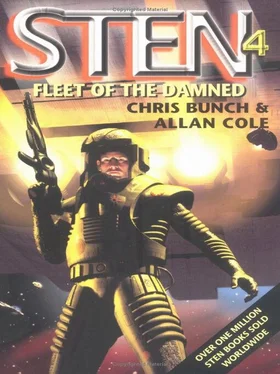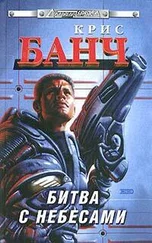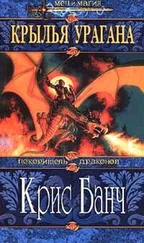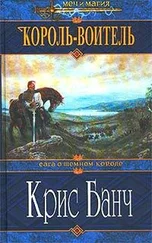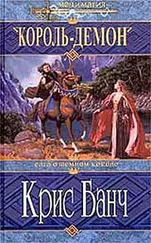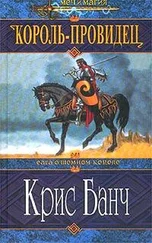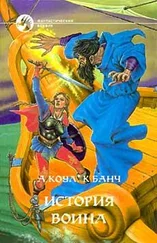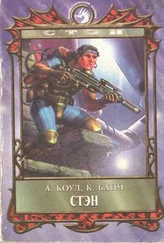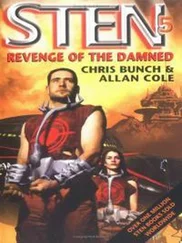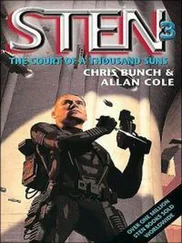There was also the increased chance of being spotted by a Tahn ship, although Sten couldn't figure why any Tahn would bother to patrol this white wasteland.
The second night was a repetition of the first, except with less shelter. Alex used the last of the cutter's power to burn a trench in the snow that would at least get them out of the direct blast of the wind.
That night passed hazily. One sailor was constantly on watch. At first light, they swallowed the last of their suits' liquid rations and moved out again.
Sten was somewhat disgusted at himself. He was starting to wheeze a little around the edges. Feeling exhaustion after only two days on the march? That would have been enough to get him returned to unit immediately back in the Mantis Section days. Sten was starting to understand why so many navy types were lardbutted.
Kilgour didn't make it any easier. His home world of Edinburgh was three-gee, and Cavite was E-normal. And somehow, even though he resembled an anthropomorphized beer keg, he had managed to keep in condition. He tanked through the snow as if it weren't there, as if he weren't wearing a shipsuit, and as if he weren't laden down with the front end of a bubblepak and carrying a medpak and two weapons.
Also, he kept making jokes—or trying to. Sten had to threaten him with close arrest to keep him from telling the awesomely imbecilic spotted snake story—Sten had heard it once back during Mantis training—three times too many. Kilgour had other stories that were almost as bad.
"Ha' Ah gie y' aboot in' time Ah were tourin't th' estate," he began cheerily to Ensign Tapia.
"What's an estate?" she growled as she almost fell face first into a drift.
"Ah, wee Sten, pardon, Commander Sten, hae dinnae spoke th' Ah'm th' rightful Laird Kilgour ae Kilgour?"
"I have no idea what you're talking about."
"Ah'm tryin't't' tell y' boot th' pig."
"Pig?"
"Aye. A great mound ae swineflesh, ae were. A' any rate, th' first Ah e'er saw ae tha' pig wae when Ah wa' tourin't th' estate. An' Ah seeit thae great porker. An' it strikit me, for it hae a wooden leg. Three legs an' aye, a peg."
"A three-legged pig," Foss put in suspiciously, having waded up close enough to Tapia to hear the story.
"Aye. A wonderment. So thae's this wee farmer standin't nigh his fence. An' I begin't an say, "Tha' pig, mister.'
"An' he speakit, an say, 'Aye, aye. Thae's a pig ae marvel. Three year ago, m' wee lad fall't down. Inta th' pond. Tha' dinnae be anyone around, an' m' heir's a drown't.
"'Doon plung't th' pig, an' pull him out.'
"An' Ah'm listen't, an' Ah say't, 'Tha's ae marvel. But—'
"An once't 'gain he cuts me off. 'Two year gone, m' gran's in th' gravsled, an' the controls go. An' the gravsled lifts an' 'tis headed for yon viaduct.'"
"Viaduct?" Tapia asked.
"Noo, tha's a fair question, lass. Ah'll answer in a bit. T' continue. I agree wi' m' wee tenant. 'Aye, tha's a pig tha's a wonder. But about'… an' ag'in he chops me.
"'One year past, 'tis a deep winter. Y' c'lect, Laird Kilgour.' An Ah says, 'Aye, Ah remember'
"An he says, 'M' croft catches fire. An' we're all asleep ae' th' dead. But this pig, he storm't ae th' hoose an' wakit us all. Savin't our lives.'
"Ae tha' point, Ah hae enough. 'Be holdin't tha' speech, man,' Ah roars. 'Ah 'gree. 'Tis a marvelous hog. Wha' Ah want to know is, Why th' clottin' wooden leg !?'
"An th' crofter look't ae me, an' say, 'Why, mon, you dinnae eat ae pig like thae all at once!'"
Tapia and Foss, both thinking indictable thoughts about premeditated murder, continued wading through the snow. That was Alex on the march.
But possibly his worst trait was the inveterate cheeriness—the constant chants of "Only five more klicks, Skipper" grew wearisome. Especially since they were now plowing through snow that was turning to slush.
Slush? Sten looked ahead and realized there weren't any more peaks in front of them. The valley widened out toward foothills. There were now patches of bare rock in the valley center.
They had made it.
Now all Sten had to worry about was getting his noninfantry deckwipes through the Tahn front lines, into Cavite City.
A piece of cake.
When the ground stayed flat for seventy-five meters and the temperature went above 15°C, they unpeeled. Kilgour choked politely.
"Th' universe smell't mightily a' feet," he observed. "Th' Tahn'll track us by the reek."
He wasn't exaggerating—they collectively stank like a cesspit. But that lasted only until they ran across the first cattle tank. Kilgour shooed off the three scrawny bovines and charged into the water, tearing off his coveralls as he waded. The others were close behind him.
Sten gave them an hour to scrape off the worst before continuing the march. Now they needed rations and a secure place to plan just how they were going to return to friendly lines.
Navigation was easy—they marched toward the columns of smoke on the horizon that marked the battleground around Cavite City. The land was dry, poor grazing country, spotted here and there with ramshackle farms, most of which were deserted. Sten skirted the few that showed signs of occupation—they didn't look to have enough for their owners let alone be able to resupply Sten.
Then they hit prosperity: green fields and, in the distance, farm buildings. But 2,000 meters from the main building, prosperity showed itself as tragedy. The fields around the farm were deserted.
Sten spread his people out and advanced very cautiously. At 500 meters, he put his sailors into a defensive line in one of the many now-empty irrigation ditches that had made the land arable.
He and Alex went forward.
In the center of the farm was a small artesian pond. Scattered along its banks were fifteen or so bodies. Sten and Alex crouched behind a shed and waited.
A door banged from the main building. Sten thumbed his safety off. The door banged again. And again. It was the wind.
They leapfrogged forward to the first of the bodies. Kilgour sniffed.
"Three. P'raps four days now," he said. "Ah wonder if they had a trial first."
The people had not been killed in combat—each of the men and women had his hands wired behind him or her.
Sten rolled a body over. There was a glint of gold visible around the bloated neck of the corpse. Sten used his gun barrel to pry it free. The glint was a neck emblem.
"They were Tahn," Sten identified. "Settlers, by the way they're dressed."
"Wonder who butchered them?"
Sten shrugged. "Imperial vigilantes. Tahn troops. Does it matter?"
"M' morbid curiosity, Commander. Let's tumble the house."
They brought the others into the farmyard. A couple of sailors saw the bodies and threw up. Get used to it, people, Sten thought. From here on out, we won't be fighting a long-distance war.
He, Tapia, and Kilgour went through the main house. It looked as if the building had been picked up, turned upside down, shaken, and then replaced on its foundations. Everything that could be broken was. Anything that could be spoiled was befouled.
"Ah hae a theory. 'Twas no Imperials did this—four days ago, they'd be scuffin' toward Cavite. Tahn soldiers whidny hae taken th' time to be't ae thorough." As he spoke, he was stuffing unbroken rationpaks into a plas sack. "My theory," he went on, "says tha' these wee folk were tryin't't' walk the fence before th' war. Which dinnae set well wi' other Tahn. When th' Tahn landed, their bro' farmers settled accounts, an—"
Kilgour stopped and picked up a tiny bottle from where it had rolled next to a sideboard. He tossed the bottle to Sten.
Sten read the label: "Mahoney Cider & Fertilizer Works. Fine Fruit and Poop for 130 Years."
Читать дальше
